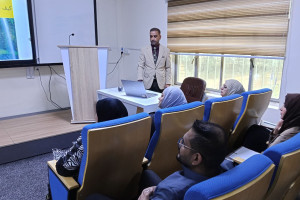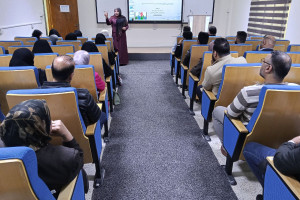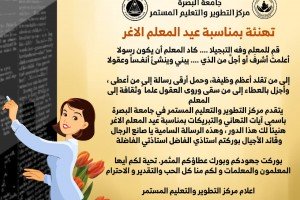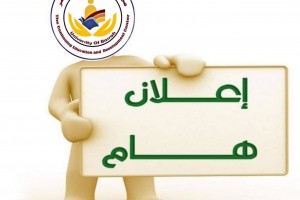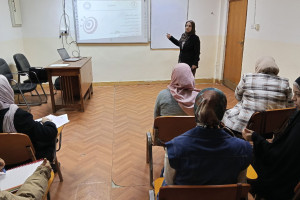
The Center for Development and Continuing Education at the University of Basra organized a workshop on the psychology of suicide. The aim of the workshop was to define to the participants that suicide is a dangerous phenomenon on both the individual and societal level. It takes different dimensions in terms of its impact, and the factors that lead to its spread, as well as the physical, psychological, and moral damages it causes, not only to the suicide victim but also to the society and the family, in light of the social influences and changes. This phenomenon has become widespread and alarming due to its high statistics, which raises questions about it.
The role of the family in education, awareness, and promoting a culture of values, goodness, and directing towards a positive life is the missing link, and is subject to constant criticism.
The workshop, presented by Dr. Ayya Abdulamir Ali, included defining suicide and its non-violent and violent methods, as well as the causes of suicide, including biological, psychological, environmental, social and cultural factors. It also covered how to diagnose suicide, its complications, and the recommendation was made for Iraqi families to educate and guide their children, and to establish social centers in residential areas as psychiatric clinics for patients, treat cases of addiction, and develop a law in the Iraqi state that prohibits the spread of the Internet or determines the ages of those who use the Internet for browsing. A financial fine should be imposed, and Friday sermons should be activated to guide people about addiction, alcohol, drugs, and suicide for awareness. The religious and guidance roles should be activated, and the roles of the Ministry of Interior and Defense regarding the Iraqi borders and the various types of drugs that enter the country, as research indicates that drugs are the main cause that leads individuals to suicide. It is also recommended for educational institutions, such as kindergartens, schools, and universities, to adopt advanced methods in education that are consistent with modern scientific and psychological theories


